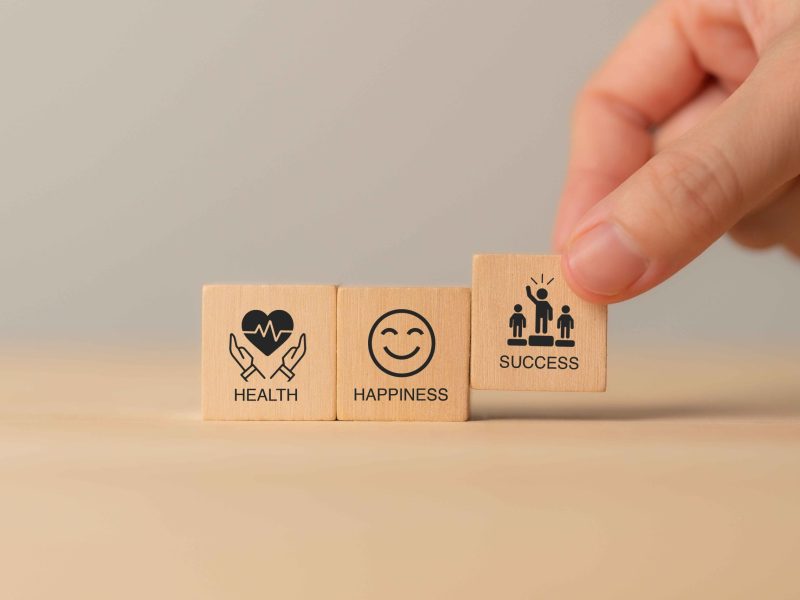Harnessing the Power of Your Mind: Emotional Well-Being and Healing

One of the most transformative tools in the journey towards emotional well-being and healing is the mind. The profound connection between mental and emotional states can significantly impact overall health and quality of life. At Restoration Healthcare, we believe in the immense potential of your mind to bring about profound changes in your emotional well-being and overall healing process.
Understanding the Power of Your Mind
The mind, a powerful force, plays a crucial role in shaping our emotions, behaviors, and overall health. By understanding and harnessing this power, you can influence your emotional state, improve your resilience, and promote healing. This process involves understanding the connection between thoughts, feelings, and physical health, empowering you to foster positive change.
Research has shown that our thoughts and emotions can affect our physical health. Stress, anxiety, and negative thinking can contribute to a range of health issues, from chronic pain to weakened immune function. Conversely, positive thinking and emotional resilience can enhance your ability to cope with challenges and support overall well-being.
Techniques for Enhancing Emotional Well-Being
To harness the power of your mind for emotional well-being and healing, consider incorporating the following techniques into your daily routine:
- Mindfulness and Meditation: Mindfulness and meditation can help you stay present and manage stress. These techniques encourage you to observe your thoughts and feelings without judgment, promoting a sense of calm and clarity. Regular meditation can also enhance emotional resilience and improve your overall mood.
- Cognitive Behavioral Therapy (CBT): CBT is a therapeutic approach that identifies and changes negative thought patterns. By challenging and reframing negative thoughts, you can improve your emotional responses and develop healthier coping strategies. CBT can be particularly effective in managing conditions such as anxiety and depression.
- Positive Affirmations: Positive affirmations are statements that reinforce positive beliefs and attitudes. Repeating affirmations can help shift your mindset and boost self-esteem. For example, affirmations like “I am capable and worthy” can counteract negative self-talk and foster a positive outlook.
- Visualization: Visualization involves imagining yourself achieving your goals or experiencing positive outcomes. This technique can help you build confidence, reduce anxiety, and stay motivated. You can reinforce your commitment to personal growth and healing by visualizing success and focusing on positive outcomes.
- Gratitude Practice: Practicing gratitude can shift your focus from what is lacking to what is abundant in your life. Keeping a gratitude journal or regularly reflecting on things you are thankful for can improve your emotional well-being and increase overall life satisfaction.
- Self-Compassion: Treating yourself with kindness and understanding is essential for emotional healing. Self-compassion involves acknowledging your struggles without self-criticism and offering yourself the same support you would give to a friend. This approach can help you navigate challenges with greater resilience and acceptance.
The Role of Emotional Well-Being in Healing
Emotional well-being is a critical component of the healing process. Addressing emotional and mental health issues creates a more supportive environment for physical healing. Stress, anxiety, and negative emotions can hinder the body’s ability to recover from illness or injury. Promoting emotional well-being enhances your body’s natural healing processes and improves overall health.
Emotional resilience, the ability to adapt to and cope with stressful situations, is a key factor in maintaining emotional well-being. Several studies have highlighted the link between emotional well-being and physical health outcomes. For instance, individuals with higher levels of emotional resilience are often better equipped to handle chronic conditions and recover more quickly from illnesses. Positive emotional states can also boost the immune system and reduce the risk of developing certain health conditions.
Creating a Personalized Approach to Emotional Healing
Each person’s journey to emotional well-being and healing is unique. To create a personalized approach, consider the following steps:
- Assess Your Needs: Reflect on your current emotional state and identify areas where you need support. This could involve addressing specific mental health challenges, such as anxiety or depression, or focusing on general well-being and resilience.
- Set Goals: Establish clear, achievable goals for your emotional healing journey. These goals should be specific, measurable, and aligned with your well-being objectives. For example, you might set a goal to practice mindfulness for 10 minutes daily or challenge negative thought patterns through CBT.
- Remember, if needed, seek guidance from mental health professionals or therapists who can provide personalized support and strategies for emotional healing. Professional support can be invaluable in addressing complex emotional issues and developing effective coping strategies, offering you the reassurance and support you need on your journey.
- Integrate Practices into Daily Life: Incorporate the techniques and practices that resonate with you into your daily routine. Consistency is critical to achieving lasting results, so commit to regularly engaging in activities that support your emotional well-being.
- Monitor Your Progress: Regularly assess your progress and adjust your approach. Track your emotional state, review your goals, and celebrate your achievements. Adjusting your strategies based on your experiences can help you stay on track and continue making positive changes.
Your Path to Emotional Well-Being and Healing
Harnessing the power of your mind is a powerful approach to enhancing emotional well-being and supporting the healing process. While self-help techniques can be beneficial, it’s important to remember that they have their limitations. If you find yourself struggling or in need of more support, don’t hesitate to seek professional help. At Restoration Healthcare, we are dedicated to supporting your journey towards emotional well-being and healing. For more information or personalized support, please contact us at (949) 523-1987.

